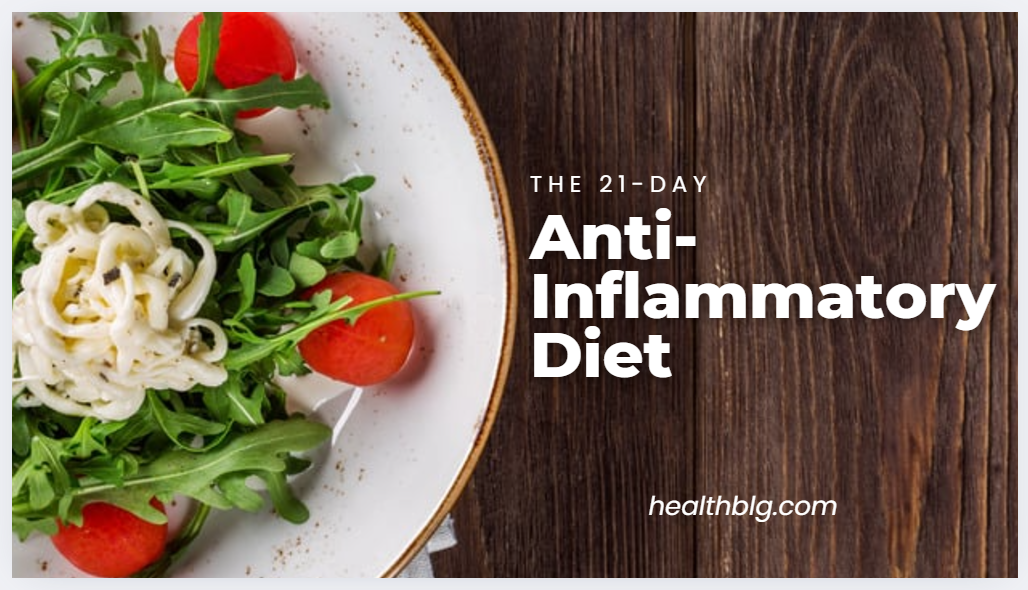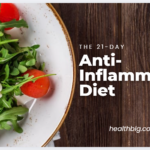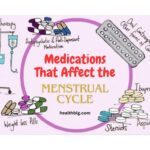Swelling is the process that occurs in the body whenever there is an injury or infection of the body tissues. Prolonged inflammation then causes complications such as heart disease, diabetes, arthritis, and some varieties of cancers. A good approach towards managing chronic inflammation is nutrition. The 21-Day Anti-Inflammatory Diet is a diet plan formed by specific rules to give the body an anti-inflammatory effect and improve health within 3 weeks.
In this article, we will explain to readers the principles of the 21-Day Anti-Inflammatory Diet, whether it is safe for them, the do’s and don’ts about this diet, and how it is effective in the long run.
What is Chronic Inflammation?
To jump straight into The 21-Day Anti-Inflammatory Diet program, allow me to explain what chronic inflammation is. Inflammation is a form of response by the body to infections or injury to protect itself. However, when this process goes unchecked or becomes prolonged, it can result in a state of chronic inflammation, which has been linked to various diseases, including:
-
Arthritis: Chronically inflamed joints give rise to painful conditions.
-
Cardiovascular diseases: Inflammation effects due to consumption of junk foods also build up plaque in the arteries, thus endangering the heart.
-
Diabetes: When the inflammatory process occurs during the development of Type II diabetes, the action of the insulin can alter.
-
Cancer: Inflammation members have been linked to cancers and their progress.
-
Autoimmune diseases: Illnesses such as lupus or multiple sclerosis are those in which the immune system cannot distinguish between self and foreign substances.
The 21-Day Anti-Inflammatory Diet is intended to lower this chronic, low-grade inflammation, which could offer relief to those with an already established inflammatory disease and also protect against the development of other similar diseases.
Best Practices of the 21-Day Anti-Inflammatory Diet
The 21-Day Anti-Inflammatory Diet is dedicated to using ingredients that fuel the immune system and decrease the inflammation process in the body. Here are the core principles of the diet:
1. Eat More Plant-Based Foods
Plant products have many antioxidants, fibre, vitamins, and minerals that prevent inflammation. The following plant-based foods are particularly beneficial:
-
Fruits: Cereals, particularly berries such as blueberries, strawberries, and blackberries, are sources of antioxidants; they eliminate oxidative stress and reduce inflammation. American cheese, peanut butter, and jelly on wheat bread, apples, oranges, and grapes are also good on the side.
-
Vegetables: Spinage, Kale, and Swiss Chard are great choices since they contain many anti-inflammatory vitamins and flavonoids. Broccoli and cauliflower – both cruciferous vegetables – are also anti-inflammatory.
-
Legumes: Beans, lentils, and chickpeas are good, fibre and preprotein sources, decreasing inflammation and enhancing health.
2. Incorporate Healthy Fats
Junk food contains unhealthy fats, while health-enhancing foods are high in good fat. The 21-Day Anti-Inflammatory Diet plan also encourages adding healthy fats to your meal plan. Some fats are good for you and are wanted when looking to minimize inflammation and promote overall health. Key sources include:
-
Olive oil: needs no introduction as it is one of the best fats you can take due to its monounsaturated fats and antioxidant content. It has oleocanthal, which possesses the anti-inflammatory potency of ibuprofen, and blanalgin, which has pain-relieving properties.
-
Fatty fish: Cold water fatty fish like salmon, mackerel, sardines, and trout also contain omega-3 fatty acids that have been found to help reduce inflammation in the body.
-
Nuts and seeds: Add fruits such as peaches, pineapple, papaya, and oranges, which contain healthy fats and anti-inflammatories.
3. 2 Minimize on Process Foods and Sugars
A recognized vital cause behind chronic inflammation is the excessive intake of processed foods rich in refined sugars. These types are inflammatory in the body and cause oxidative stress and, therefore, worsening of chronic diseases. The 21-Day Anti-Inflammatory Diet encourages you to avoid or minimize:
-
Processed snacks: Processed foods such as chips, cookies, cakes, and packaged snacks are full of refined sugars, ugly fats, and hidden irritating ingredients.
-
Refined sugars: Overconsumption of sugars is a red flag for inflammation issues. They should eliminate foods that are sweetened with sugar, candy, and foods with added sugars.
-
Trans fats: An unhealthy type of fat called trans fats is also known to cause inflammation and is related to a high chance of getting heart disease, among other diseases.
4. Emphasis should be placed on anti-inflammatory spices and herbs.
Some healing herbs and spices have proved to be effective natural anti-inflammatories. Adding the following foods to your diet also improves taste and fights inflammation: The most beneficial anti-inflammatory spices include:
-
Turmeric: Composed curcumin with clinically significant anti-inflammatory and antioxidant capability levels. Catechins in turmeric can interfere with mineral absorption, but add black pepper to your food to improve the uptake.
-
Ginger: Especially in arthritis, ginger acts as an anti-inflammatory, suppressing pain and inflammation.
-
Garlic: Comprise allicin, for example, has been proven to possess anti-inflammatory and immune modulatory properties.
-
Cinnamon: This spice appears to subtly lower levels of specific markers of inflammation and can help regulate blood sugar.
5. Stay Hydrated
Hydration is essential to combat inflammation, and keeping the body hydrated is critical. Dehydration also contributes to inflammation; when your body is well-hydrated, you can remove toxins from your system. Recommended fluid intake should be at least eight cups (approximately 2-litres) per day, with low-impact herbal teas such as ginger or green, tea included.
6. Whole grains are also healthier for you to eat than refined grain products.
Products made from refined grains, including white bread and pasta, cause inflammation because they increase blood sugar levels. On the other hand, whole grains such as brown rice, quinoa, and oats are filled with, fibre antioxidants and good nutrients that help reduce inflammation.
The 21-Day Anti-Inflammatory Meal Plan
Here is a suggestion of what the first few days of the 21-Day Anti-Inflammatory Diet might look like to get you started.
Day 1-3:
-
Breakfast: A spinach berry, chia seeds, and flaxseed with unsweetened almond milk smoothie.
-
Lunch: Roast vegetable and chickpea quinoa salad, dressed with olive oil, lemon juice, paraphernalia of turmeric and cumin.
-
Dinner: Grilled salmon, steamed broccoli, and any side dish such as quinoa or brown rice.
-
Snacks: A few walnuts or almonds, an apple or one green apple, carrots, and hummus.
Day 4-7:
-
Breakfast: Porridge with honey, ground flax, and packed cinnamon, and top it with berries like blueberries or strawberries if available.
-
Lunch: Lentil combined with carrots, celery, garlic, and turmeric soup, and side whole-grain bread.
-
Dinner: Stuffed chicken breasts with baked sweet vines and steamed kale in olive oil.
-
Snacks: Snacks: Several rounds of thin cucumber sticks with guacamole as the dip or only five almonds, cashews, or peanuts.
Day 8-14:
-
Breakfast: whole grain toast with mashed avocado, a poached egg on top, and then dusted with turmeric.
-
Lunch: Organic lettuce, tomatoes, cucumber, olives, feta cheese, sunflower oil and balsamic vinegar dressing, turkey, avocado, and pumpkin seeds.
-
Dinner: Stir-fried tofu with bell peppers, broccoli, onions, and ginger in coconut oil, dietary accompaniment, and brown rice.
-
Snacks: Small serving of blueberries, a serving of fruit salad, or a chocolate piece having 70% cacao content or above.
Conclusion
By eliminating foods that cause inflammation, the 21-Day Anti-Inflammatory Diet helps eradicate chronic inflammation and the disadvantages of different diseases. But this comprises buying healthy foods, whole and plant-based foods, healthy fats, and anti-inflammatory spices while reducing processed foods, refined sugar, and unhealthy fats on your body again.
At the end of the 21 days, many people feel more alert, complain of less joint pains, and shed some weight. Thus, to make them permanent, it is crucial to remain compliant with anti-inflammatory diet consumption and pay attention to what you eat.
Similarly, the 21-day Anti-Inflammatory Diet shown above is a good start; however, these changes should be permanent. This way, you are getting less inflammation as a bonus and generally enhancing the quality of your life and enjoying long-lasting overall health.










